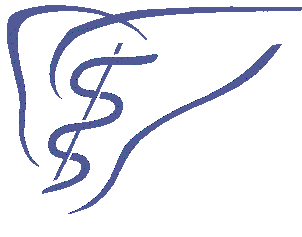 Anthroposophic
Medicine
Anthroposophic
Medicine
Homepage of the Medical Section at the Goetheanum with information about anthroposophic medicine
|
|
| International Federation of Anthroposophical Medical Associations IVAACore issues on the implementation of Directive 92/73/EEC and 2001/83/ECDirective 2001/83/EC (into which 92/73/EEC has been assimilated) in its consequences jeopardises current and future availability of remedies of the anthroposophic medicine, and thereby the doctorís and patientís freedom to prescribe and obtain. This also very seriously restricts future development and research in this field. In the formulations so far the requirements of anthroposophic medicine have not been sufficiently taken into account, and as a result, the current system of Directives does not comply with the legal norms currently set for legislation by the EC, as is demonstrated in the legal opinion. A number of points are highlighted where the current Directive either fails to give proper reasons, or contravenes the principles of equality, or is disproportionate in its measures. Also, the Directive does not meet general principles currently followed by the European Parliament with regard to pluralism, freedom and patientsí rights. Article 14.1/indent 1: of the Directive stipulates a dilution of less than 1 part per 10.000, and a restriction to dispensing forms for oral and external use to qualify for simplified registration. This random and scientifically unfounded restriction excludes many characteristic and indispensable remedies of the anthroposophic medicine. Other pharmaceutical forms such as injections, eye-drops, suppositories and other classical forms have already been in use for 80 years in anthroposophic medicine across Europe without any problems. The free practice of this school of medicine is almost impossible without these pharmaceutical forms. Different implementations in the member states regarding these pharmaceutical forms again impedes harmonisation and free transfer across Europe. Article 68: The labelling requirement "Homeopathic Medicinal Product" is taken to preclude the option of "Homeopathic Medicinal Product of the Anthroposophic Approach to Medicine" in some Member States. Such a restrictive interpretation generates confusion and uncertainty for the consumer (both patient and prescriber), and hinders the free transfer of goods within the European Union. What becomes clear is the un-harmonised position, that in some cases the same medicinal product is labelled and dispensed differently in different member states
Article 69.1/indent 11: The
labelling requirement " Homeopathic Medicinal Product without approved
indication " undermines the necessary trust between doctor and patient.
Article 15: For stocks of
anthroposophic medicinal products, at best the anthroposophic nature can be
documented, not the homeopathic. In some member states (Germany, Italy) this
rightfully also envisages anthroposophic literature though not in other Member
states, which can lead to insurmountable difficulties in the licensing process. The doctorís and patientís freedom to prescribe and obtain is very seriously restricted where the option of a Ďspecialsí preparation is not feasible for the many anthroposophic medicinal products which require more complex manufacturing processes.
Article 16: In the absence of
adequate government agencies, anthroposophic medicinal products will be assessed
by committees without appropriate expertise in the principles and practice of
the anthroposophic medicine. It is only with such expertise that relevant
assessment can be made, and only some Member States have attempted to make
appropriate arrangements to this effect. For such expertise international and
European organisations such as the IVAA should be asked. This should also be
taken into account in the context of the Draft Regulation 2309/93 concerning
procedures and the EMEA. Some of these issues may be remedied by enabling a Europe-wide registration of anthroposophic medicines under the traditional use category. For this purposes the traditional use category should be extended to also include parenteral dispensing forms. In this context it was also highlighted by the European Parliament that the restriction of simplified registration to oral and external use categories has no scientific basis and is indeed disregarded in various ways by member states. For extensive information on the details of the implementation of the directive in the individual member states with respect to the jeopardy to, or decreased availability of these medicinal products, the interference in the doctor-patient-relationship, the reality of the possibility of an article 9 registration, on effects on further pharmacological development and research etc., the national member associations of the IVAA can be consulted. For a detailed report on the consequences for the medicinal products currently (still) available the European Association of Manufacturers of Medicines used in the Anthroposophic Medicine (AEFMUTA) can be consulted. The European Federation of Natural Medicines Users and the European Federation of Patient Associations for Anthroposophical Medicine can give further information on the effects on the patientís freedom of choice, on scientific pluralism and on reimbursement of prescription costs in national health care systems. |
|
If you have questions, suggestions or comments regarding the content of these pages, please contact directly the secretary of the Medical Section CH-4143 Dornach, Telephone: +41-61-7064290, Telefax: +41-61-7064291, E-mail: med.sektion@goetheanum.ch. This page was updated 08.11.2003. |